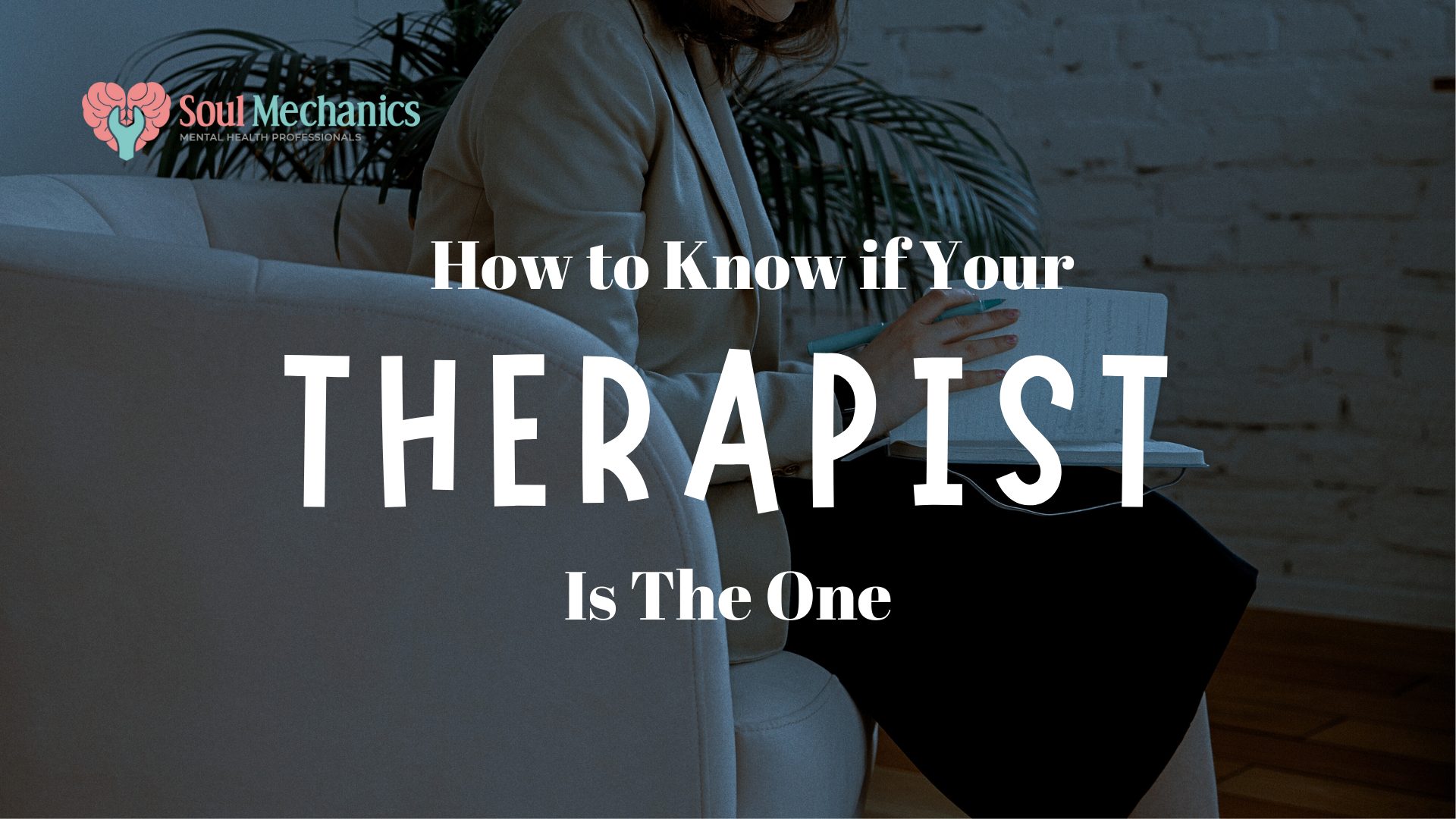Finding the Right Therapist: How to Know if Your Therapist is the One, and When It’s Time to Move On
Finding the Right Therapist: How to Know if Your Therapist is the One, and When It’s Time to Move On

Written by: Jenefa Anthony, Licensed Counselor (KB 11780)
Therapy can be a life-changing experience. It’s a space where you open up, heal, and discover new ways of thinking, feeling, and behaving. But just like any relationship, the connection between you and your therapist needs to be the right one for it to work truly.
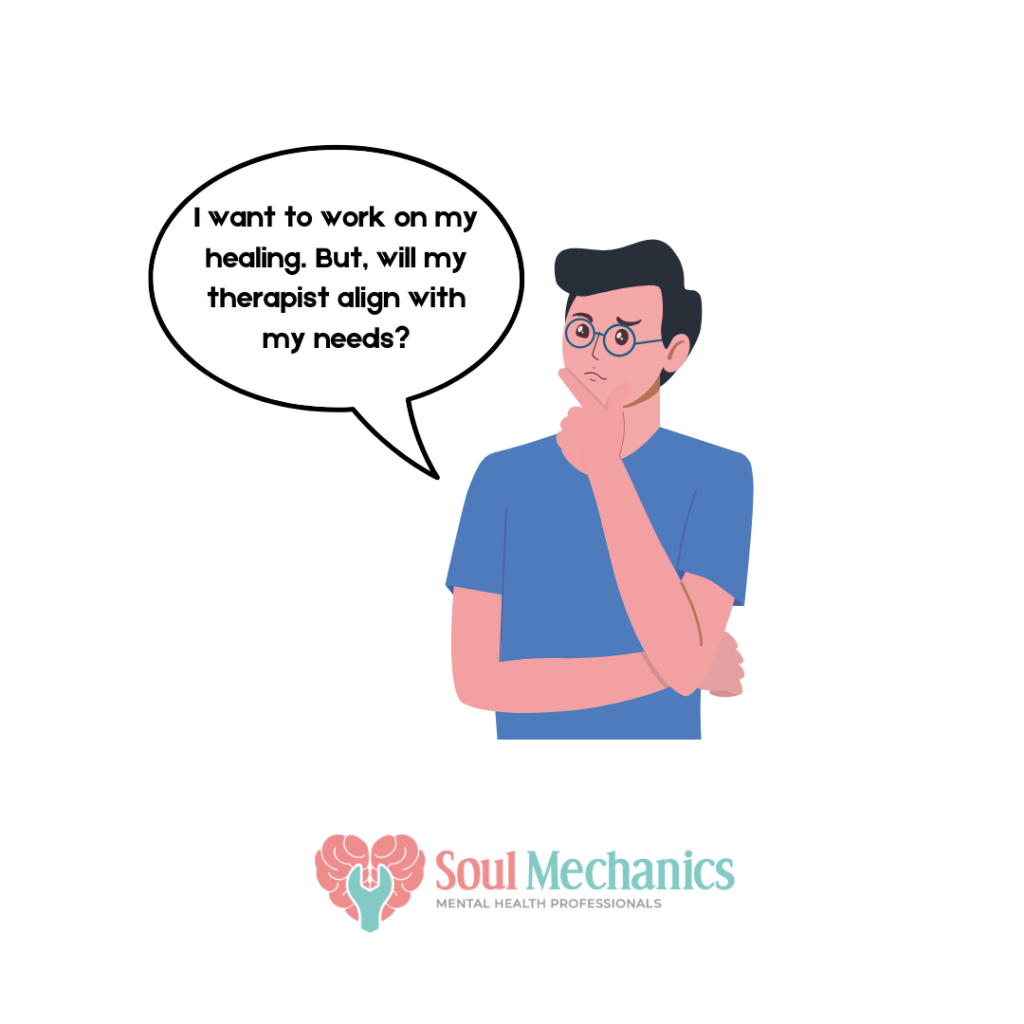
Sometimes, the relationship just clicks, and you feel supported, heard, and understood. But other times, despite your best efforts, things might not feel quite right. How can you tell whether your therapist is the right fit for you? And if things aren’t working, how do you know when it’s time to make a change?
If you’re wondering whether you’re getting what you need from therapy, or if you’re hesitating to change therapists but aren’t sure when or how to do so, you’re not alone. Many people wonder whether their therapist is the right fit, and deciding to switch can feel daunting. Here’s a guide to help you navigate those thoughts, explore the signs that indicate whether your therapist is a good fit for you, and understand when it might be time to move on.
What Does a Good Therapeutic Relationship Look Like?
Before you start questioning your therapist, it helps to understand what makes a good fit. A healthy therapeutic relationship can feel like a safe space where you are heard, respected, and supported. Here are some of the signs that indicate you might have found the right therapist:
You Feel Comfortable and Safe Sharing Your Thoughts
It’s hard to open up about personal issues if you don’t feel safe or comfortable. In a productive therapeutic relationship, you should feel free to express your thoughts and emotions without fear of judgment. If you feel that you can trust your therapist to create a space where vulnerability is welcomed, that’s a good start.
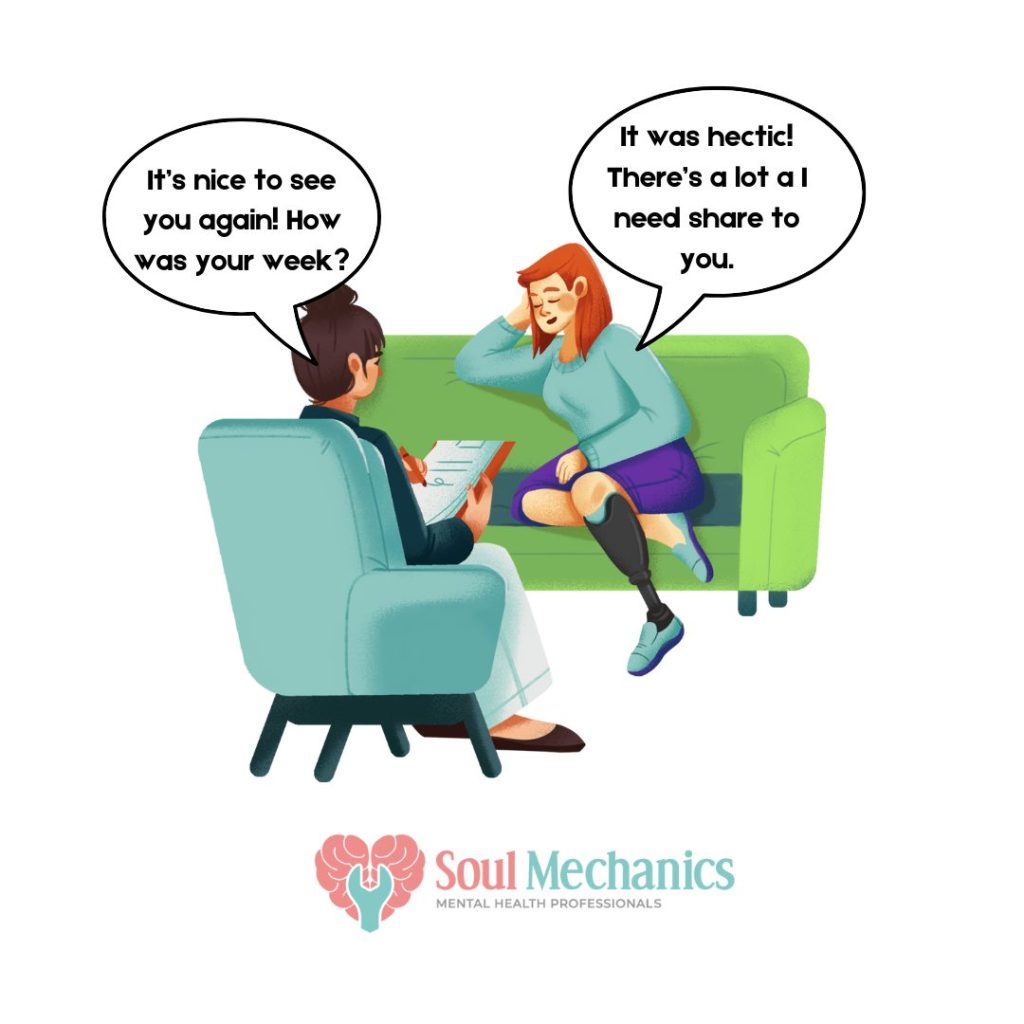
You Feel Truly Heard and Understood
Sometimes, all we want is for someone to listen and to really listen. A therapist who gives you their full attention, who acknowledges your feelings, and who responds in a way that makes you feel seen and heard is likely a good fit. When you leave a session, you should feel like your concerns have been acknowledged and validated, not brushed aside or misunderstood.
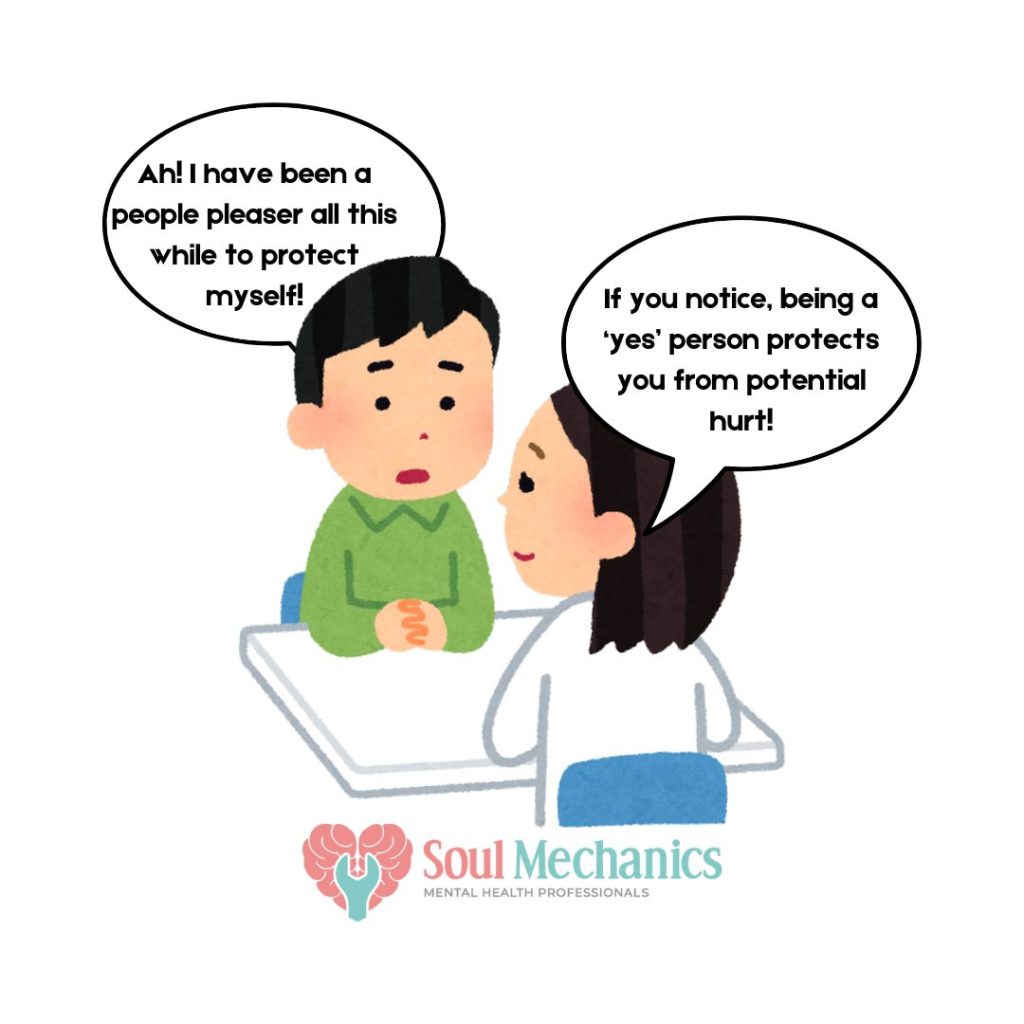
You’re Challenged but in a Supportive Way
Therapy isn’t just about feeling comfortable all the time; it’s about growth. The right therapist will challenge you, gently, of course, to look at things from a new perspective, dig deeper into your issues, and reflect on your own behaviours and beliefs. However, those challenges should always come with plenty of support. A good therapist doesn’t push you to change overnight but provides the tools and encouragement to help you move forward at your own pace.
The Therapist’s Approach Works for You
Not all therapists use the same techniques. Some focus on behavioural strategies, while others use a more reflective, talk-based approach. You should feel that the approaches your therapist is using are helping you work through your challenges. If you feel that their approach is giving you practical tools to handle difficult situations or emotions, that’s a positive sign.
You Are Seeing Progress
It may take time, but if you’re making progress in therapy, that’s a clear sign that the relationship is working. This could mean feeling more in control of your emotions, learning new coping strategies, or noticing shifts in your behaviour. Even small improvements, such as managing stress more effectively or feeling less overwhelmed, are evidence that the therapy is moving in the right direction.
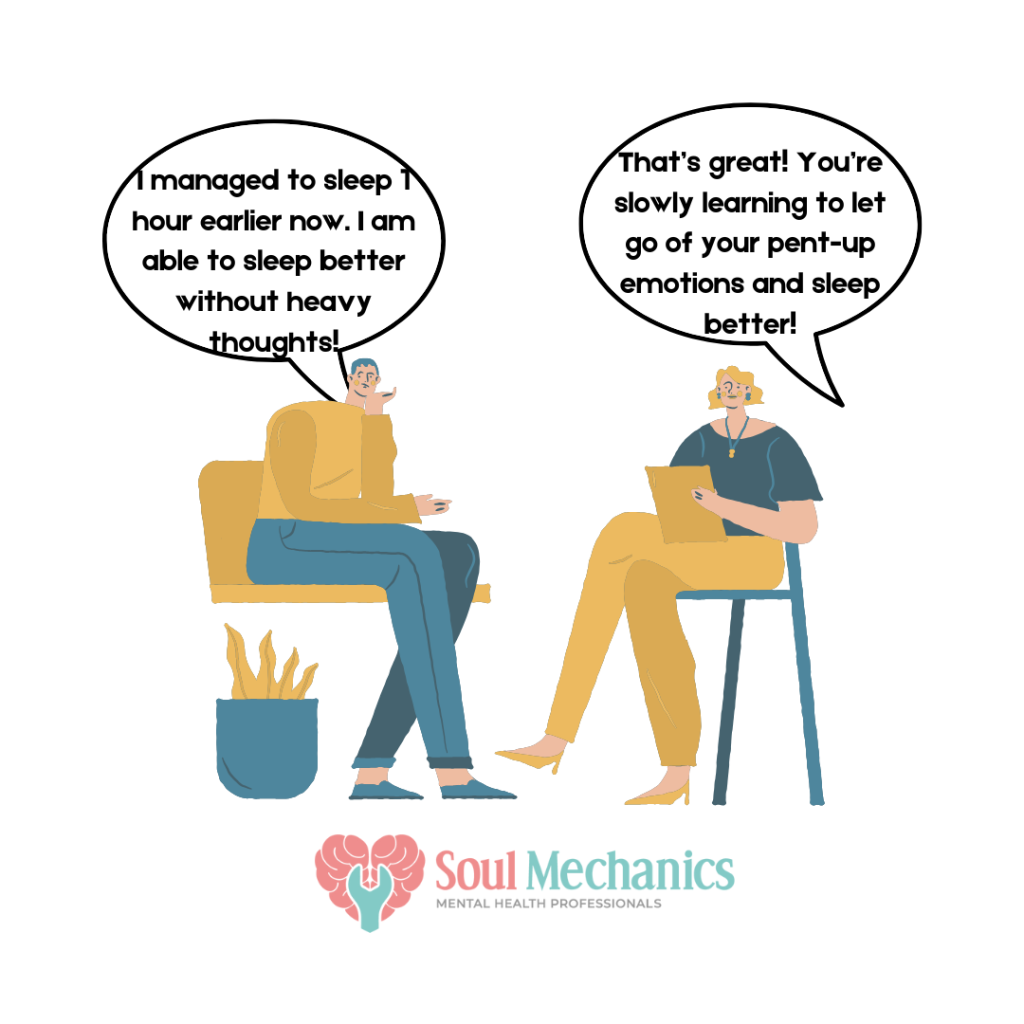
When to Question Your Therapist’s Fit
There will be times in therapy when you wonder if it’s working or if you’re in the right hands. Here are some signs that it might be time to reevaluate your relationship with your therapist.
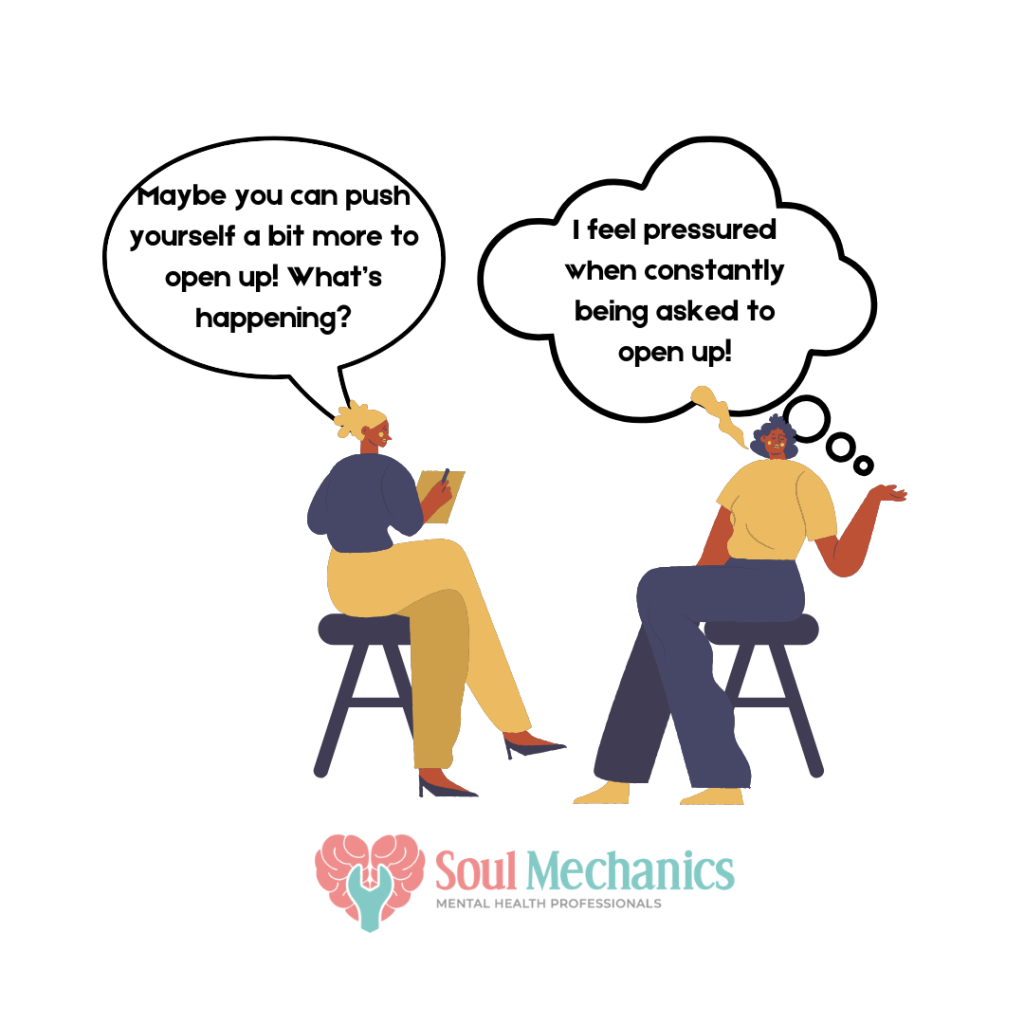
You Can’t Open Up
If you’re holding back from talking about things that matter, it might be a sign that your therapist isn’t the right match for you. This could happen if their approach feels too rigid, or you just don’t feel comfortable with them for some reason. It’s important to feel like you can share openly in a therapeutic space, and if you’re constantly shutting down or avoiding difficult topics, it could be a sign that the fit isn’t quite right.
You Don’t Feel Heard or Understood
One of the most frustrating experiences in therapy is feeling like you’re not being listened to. If your therapist doesn’t seem to get where you’re coming from, or if you often feel dismissed or misunderstood, it might be time to reassess whether this is the right relationship. Communication is key in therapy, and if it feels like a one-sided conversation, that’s a red flag.
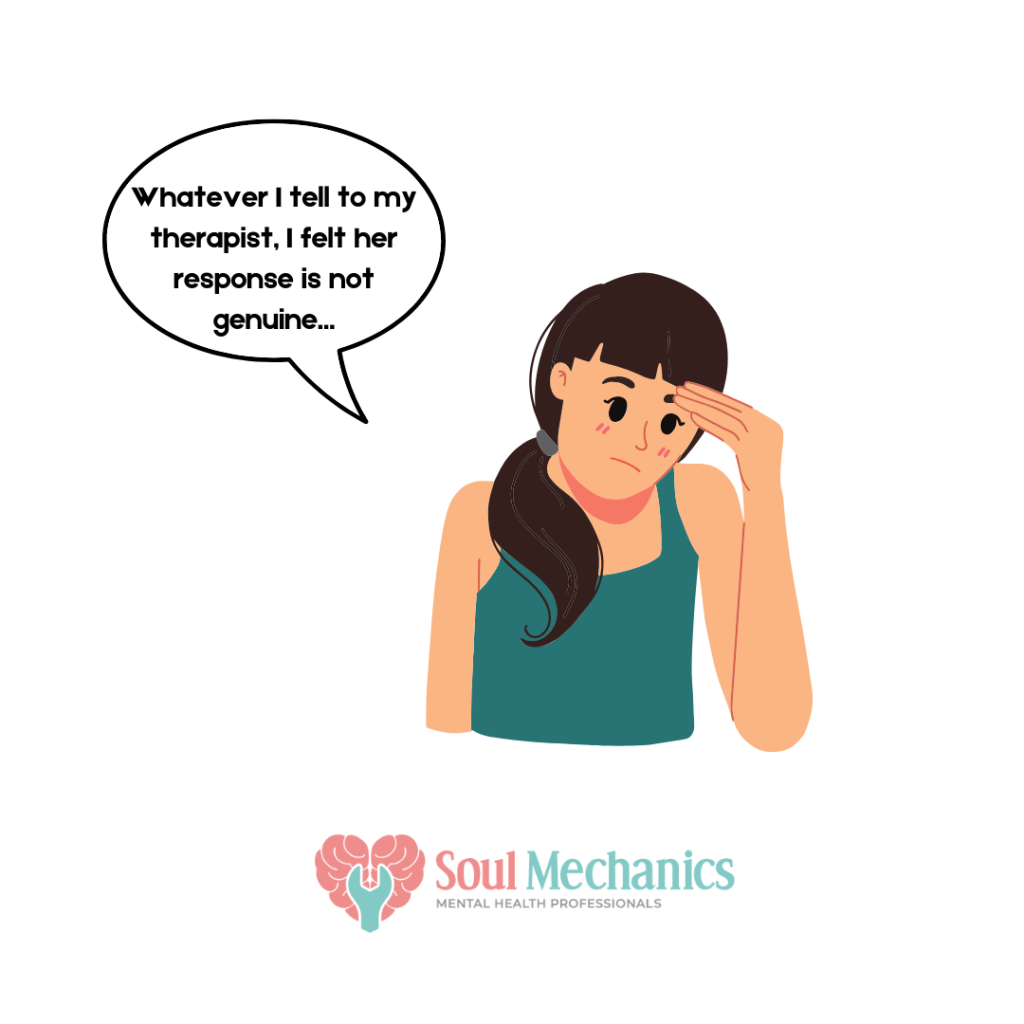
You’re Not Making Progress
Therapy is a journey, and sometimes progress is slow. However, if you’ve been seeing your therapist for a while and don’t feel like you’re moving forward, it could be a sign that the relationship is stagnant. You might feel stuck, or that your sessions are starting to feel repetitive without any real breakthrough. This could be due to a mismatch in approach, or perhaps a need for a fresh perspective or different kind of support.
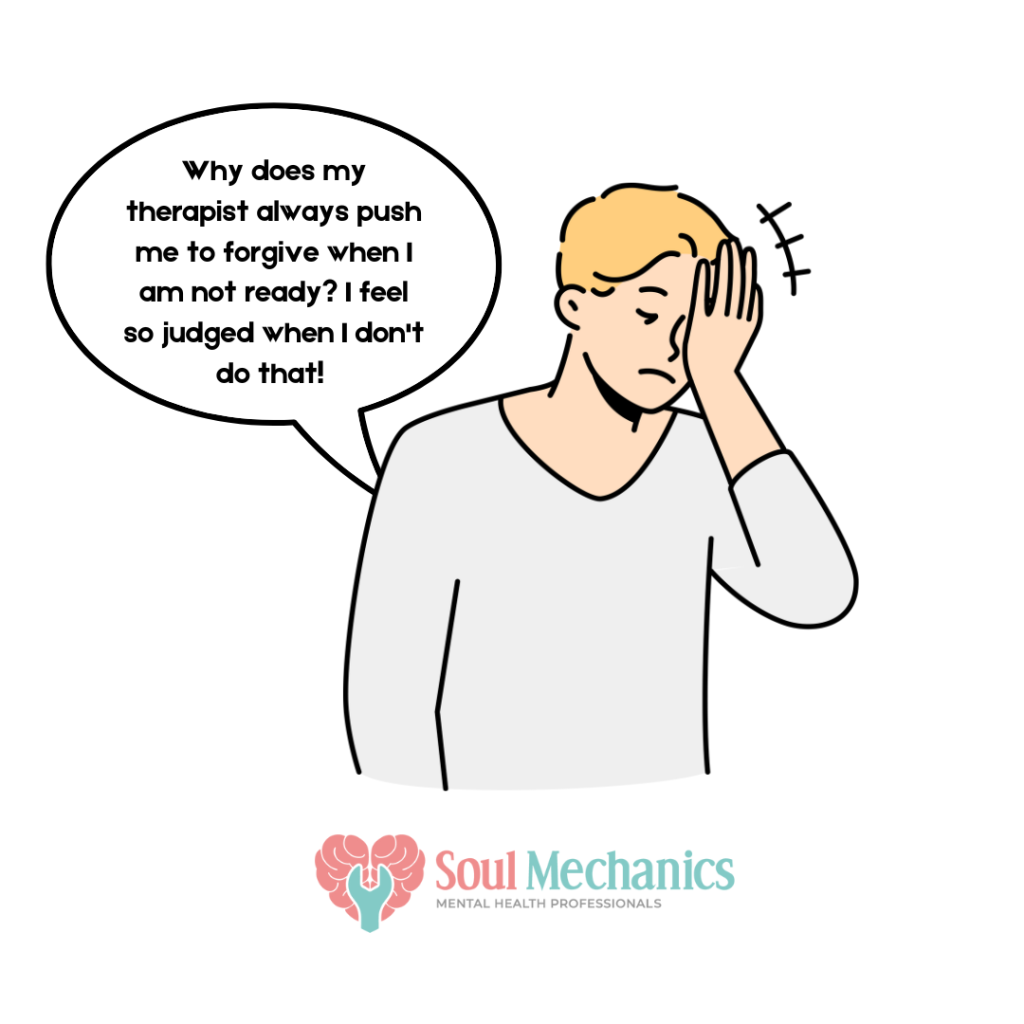
You Feel Judged or Unsupported
Therapy should be a non-judgmental, supportive space. If you ever feel like your therapist is judging you, criticizing you, or making you feel worse about yourself, it’s a serious concern. You deserve to feel supported and validated in therapy. If this is not happening, it’s time to consider whether the therapist is truly helping you, or if they’re inadvertently making things harder.
You Don’t Trust Them
Trust is the foundation of any therapeutic relationship. If you find that you don’t trust your therapist, whether because of their behaviour, attitude, or something that they’ve said, it’s hard to move forward. Trust isn’t something you can fake or force, so if it’s lacking, the therapy process is unlikely to work.
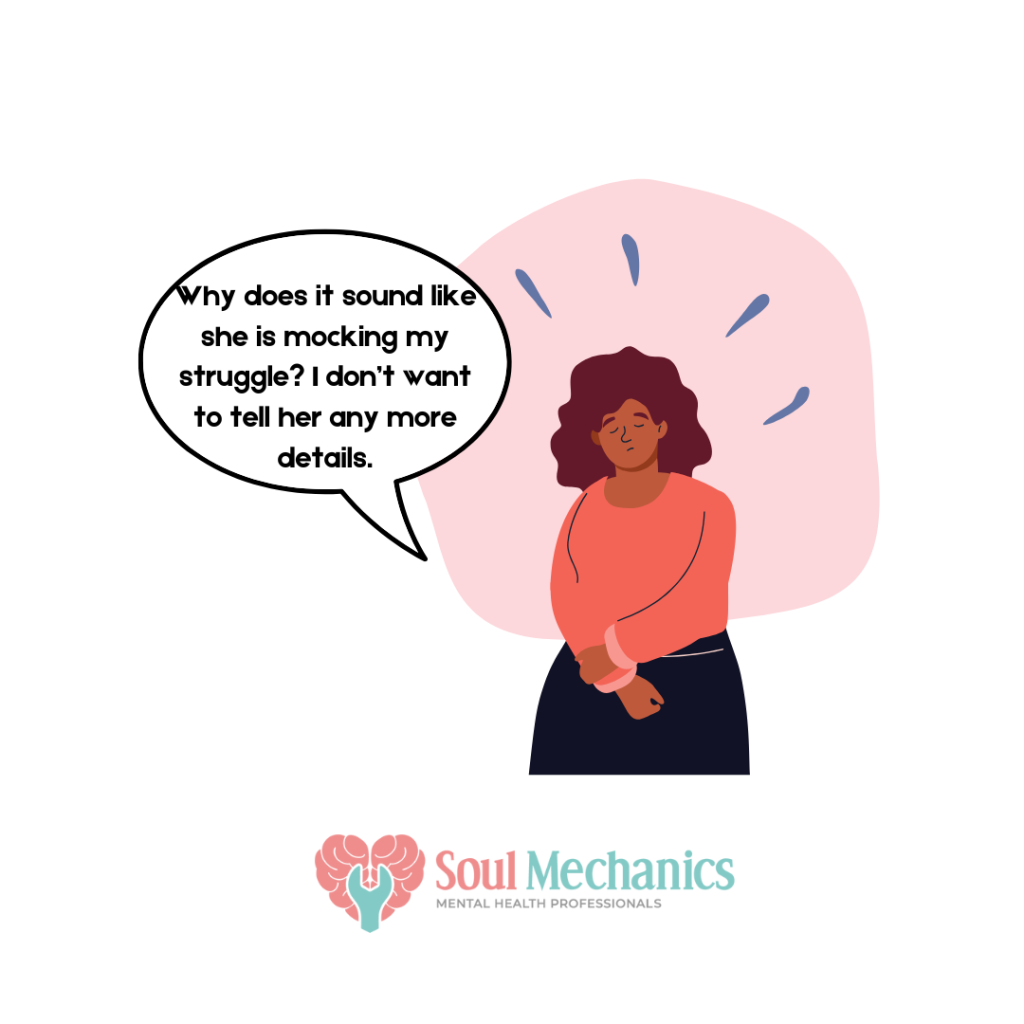
Your Beliefs and Values Don’t Align
Every therapist has their own beliefs and worldview, and while they should remain neutral and non-judgmental, it’s possible that their values may conflict with your own. If their beliefs are influencing the way they work with you, or if their personal views make you uncomfortable, it might be time to reconsider whether they’re the right fit.
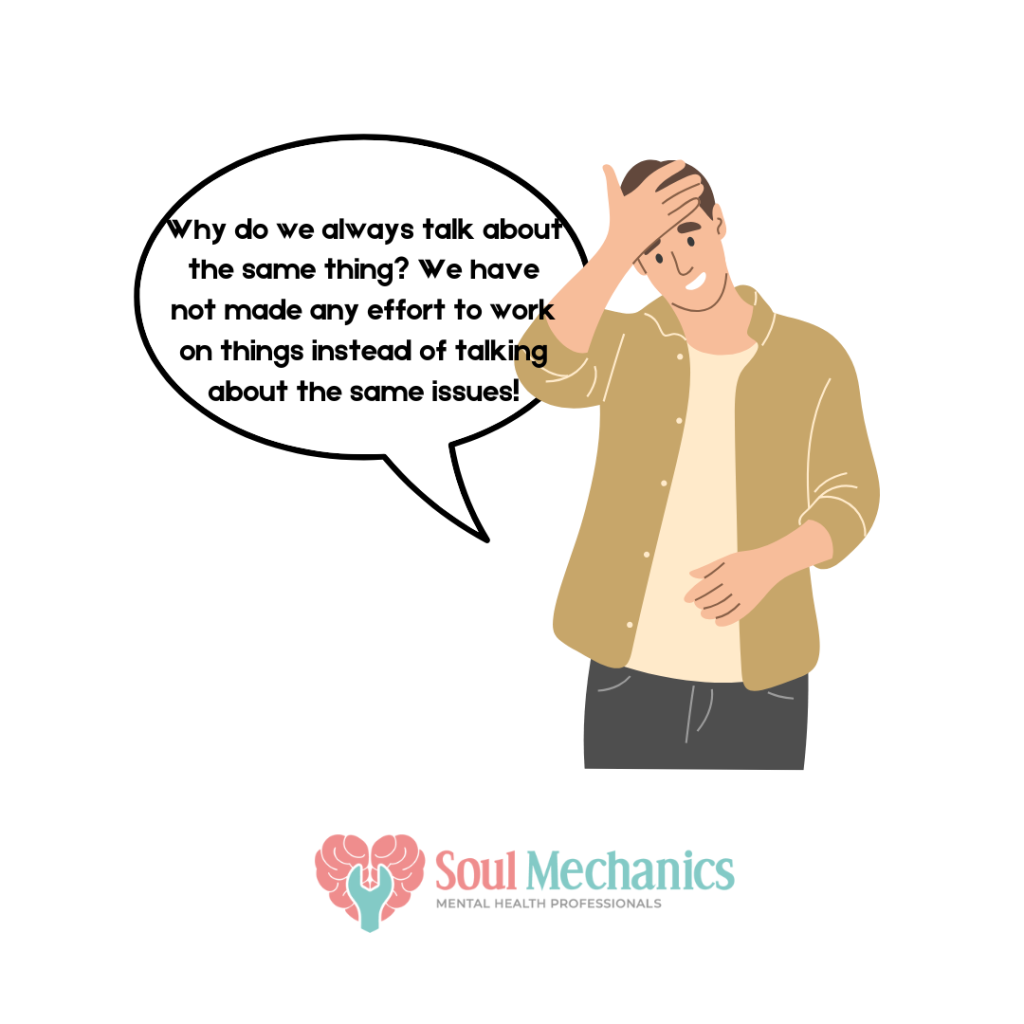
You Feel Stagnant or Too Comfortable
Therapy isn’t always easy, but if you feel that your sessions have become too comfortable or passive, you might not be pushing yourself enough. Therapy should be about growth, not just maintaining the status quo. If you’re not feeling challenged or motivated to make changes, it could be a sign that your therapist isn’t encouraging you to push your boundaries in a way that promotes progress.
What to Do if You Think It’s Time for a Change
If you recognize any of these signs and feel like it might be time to move on, it’s important to approach the situation with care. Here’s what to do:
Reflect on What You Need:
Take some time to reflect on what you’re missing in therapy. What qualities do you need in a therapist? What therapeutic approach do you feel works best for you? Knowing what you need will help you find the right person moving forward.
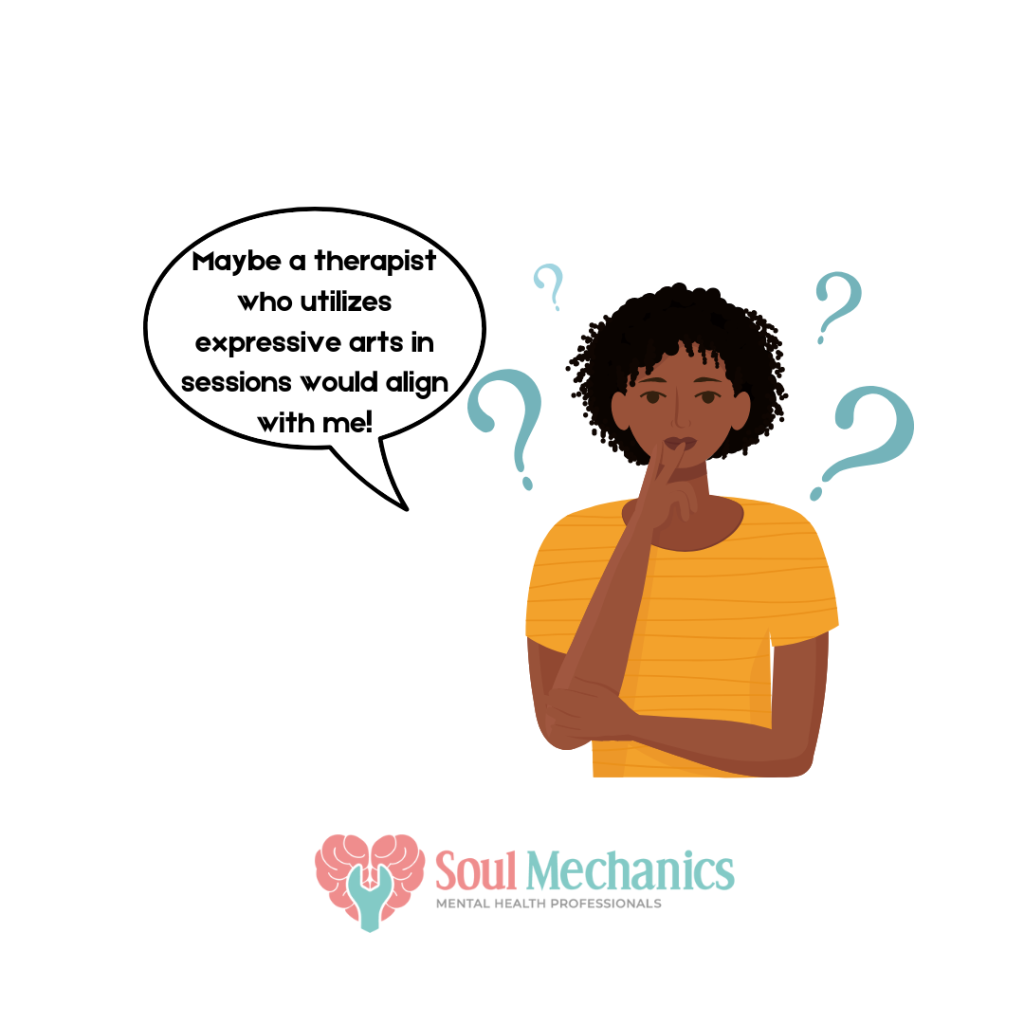
Look for a New Therapist:
If you decide it’s time to move on, take your time finding a new therapist who feels like a better fit. Research different approaches and professionals, and don’t be afraid to ask questions before committing. It’s important to find someone who makes you feel heard, respected, and supported.
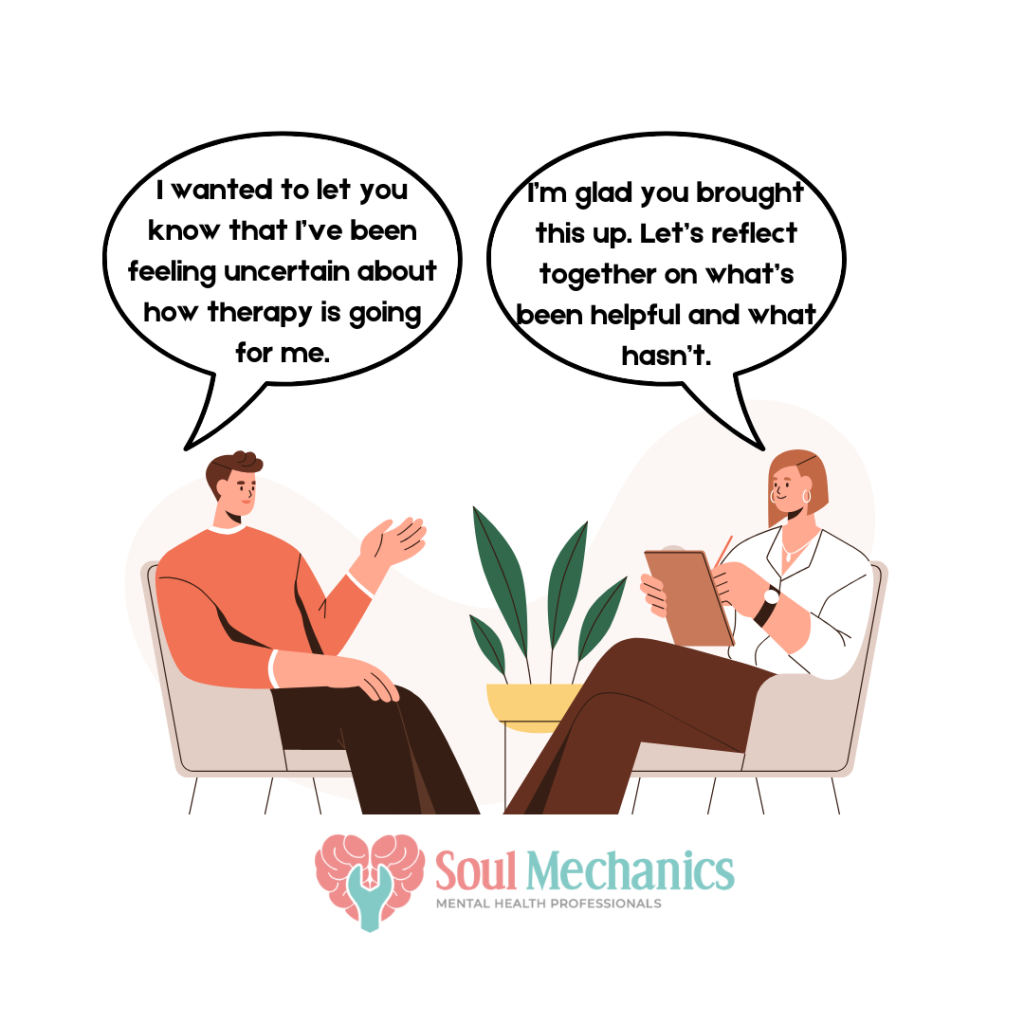
Communicate Your Feelings:
If you feel comfortable, it’s often helpful to talk to your therapist about your concerns. They may be able to adjust their approach, and this conversation could even deepen your connection. A good therapist will appreciate your feedback and work with you to address any concerns.
Give Yourself Time:
Finding the right therapist can take time, and the adjustment period with a new professional may feel uncertain at first. Give yourself patience as you work through this transition, and trust that the right person is out there to help you on your journey.
Conclusion
Therapy is an ongoing process that’s about more than just talking about your problems but about building a connection that can help you grow and heal. Whether you’re just starting out or feeling uncertain about your current therapist, it’s important to remember that finding the right fit is key to your progress.
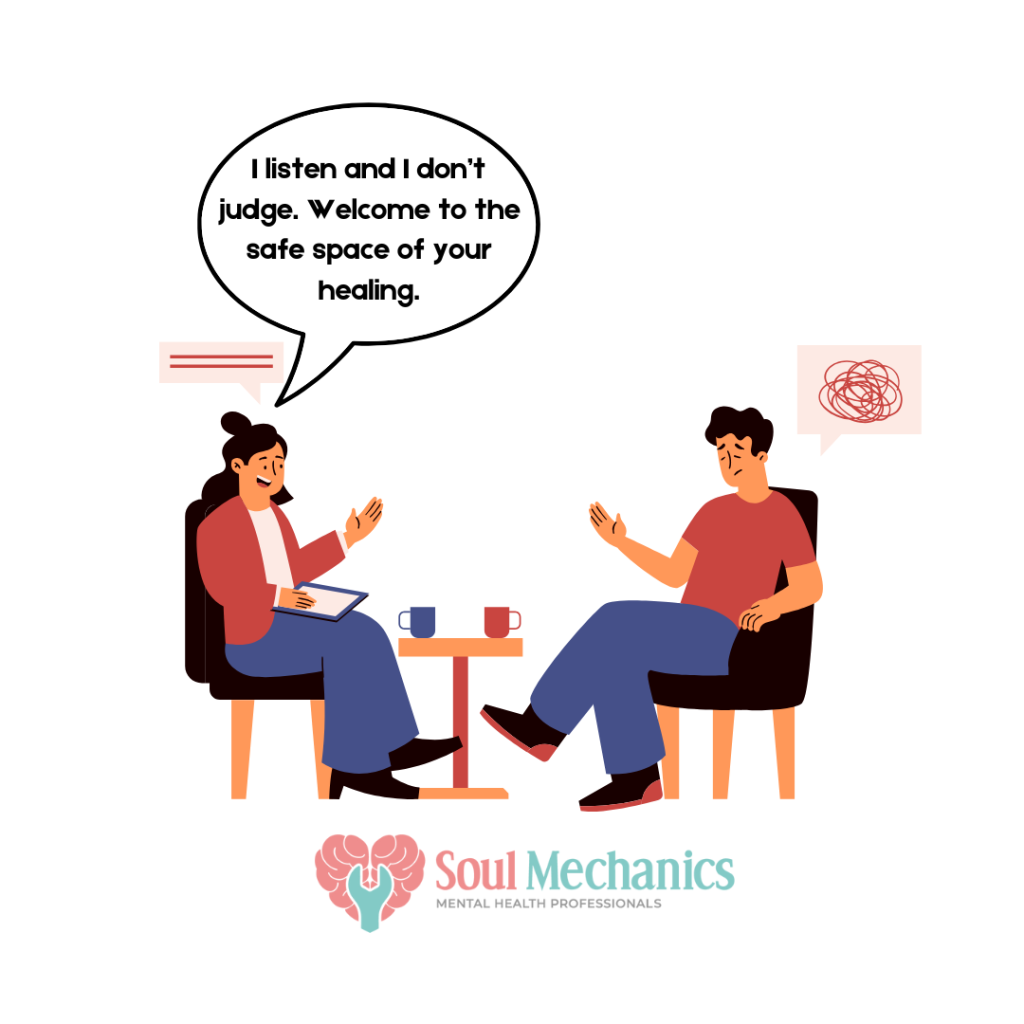
Listen to your instincts, trust your feelings, and know that it’s okay to make changes if you’re not getting the support you need. A good therapist is out there, and when you find them, therapy can become a powerful, life-changing experience.
If you’re looking for a therapist in Kota Damansara or Ipoh area, you can click here for more information.
If you enjoyed reading this, why not broaden the horizon of knowledge by learning about "High-Functioning Depression Signs: When Success Feels Empty"? You can read the blog here.
For more content related to mental health do follow us on our official Instagram.

